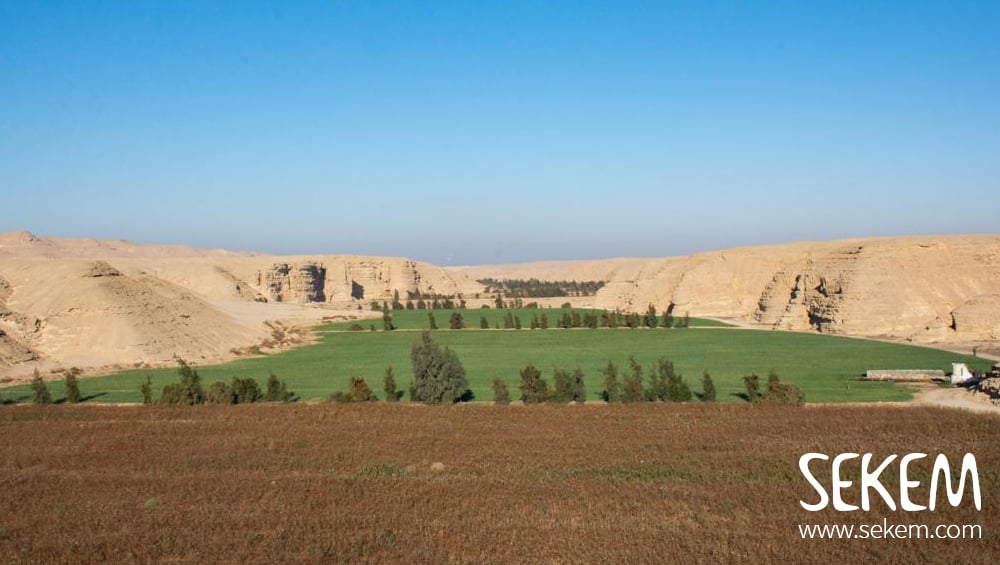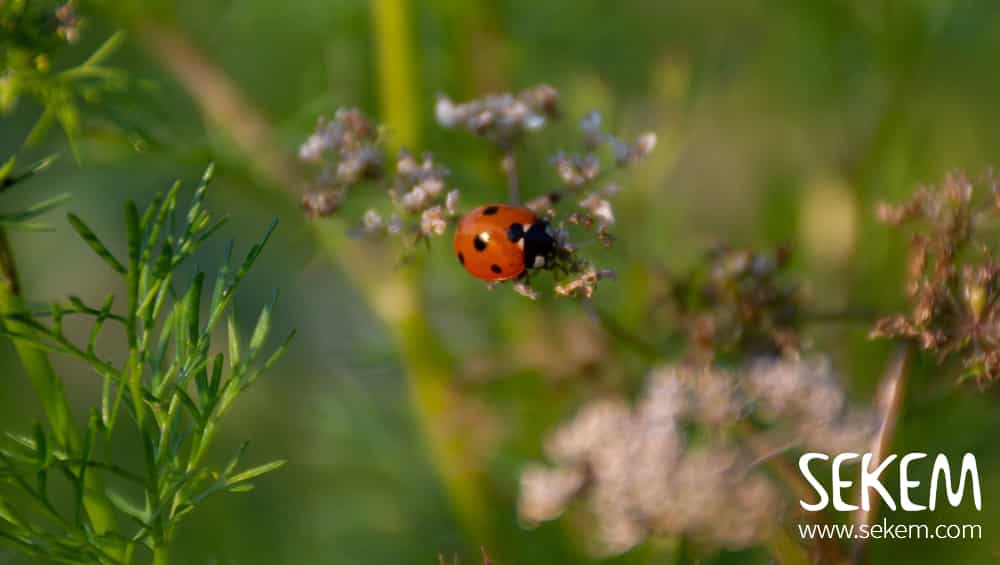Contribution to rich and resilient biodiversity in Egypt is the main focus of SEKEM activities in the year 2022. Knowing that land change is the leading reason for biodiversity loss, while agriculture is the major driver for land-use change, we devoted one of our SEKEM Vision Goals (SVG8) to creating rich and resilient biodiversity while driving sustainable agriculture and greening the desert. Currently, SEKEM together with its institutional partners is in the research phase with regard to SVG8, i.e. getting an idea about what biodiversity enhancement really means in the context of desert reclamation under very extreme climate conditions. This year SEKEM is actively pushing this agenda forward. So far we have already received guests from Ecosystem Restoration Camps that we are collaborating with since 2020, initiated the first steps in the creation of the Ecosystem Research Center together with Commonland, and took the second prize in the Slovenian “Golden Bee Award” for the preservation efforts of the native Egyptian Lamarckii bee.
Our Vision of Resilient Biodiversity
Since biodiverse ecosystems take a pivotal role in regulating the earth’s climate, for SEKEM development of healthy ecosystems is a solution to mitigate the climate crisis. To measure the impact of SEKEM’s activities on biodiversity, we are developing a scorecard that does not focus only on the question of the number of species. We measure our impact by the area of land managed and reclaimed sustainably, number of trees planted, soil quality, water use, number and mix of species, and amount of chemical pollution. Our farm in Wahat Bahariya is an inspiring example that the desert can be transformed into green and fertile land. Through balance between land cultivation and biodiversity conservation, Wahat farm became home for many birds and insects that settled down there naturally, according to the biodiversity study conducted last year.

More than Carbon Sequestration
A complementary environmental service provided by SEKEM is the carbon credits issue alongside with main agricultural work at the Greening the Desert project in Wahat. To take carbon credits further than just emission offset, SEKEM plans to express the co-benefits of biodiversity and integrate it into the Economy of Love carbon credit scheme. This can facilitate communication with responsible companies that want not only to offset their emissions, but also contribute their investments into land fertility, expansion of habitat for animals, and diversification of the desert landscape.
Dreams about Wahat Future
In June our friends from Commonland paid a visit to SEKEM Desert Farm in Wahat with an ambition to implement on the ground the 4 Returns Framework – a practical sustainable development tool for a system change that connects ecology, community values, culture, and long-term economic sustainability and allows all the stakeholders to contribute their vision of a resilient landscape. The initial plan was to test this framework on the scale of our Wahat farm, but Willem Ferwerda (founder and CEO of Commonland) decided to take it even further and offered SEKEM to implement the 4 Returns Framework on the scale of the whole Wahat Bahreya. This ambitious and no need to say challenging idea is planned to be discussed in detail at the Social Innovative Forum that will be organized in October in Wahat, where all stakeholders, including government, business, and local communities, could meet and co-create a common perfect vision for Wahat.
Kseniia Popova

